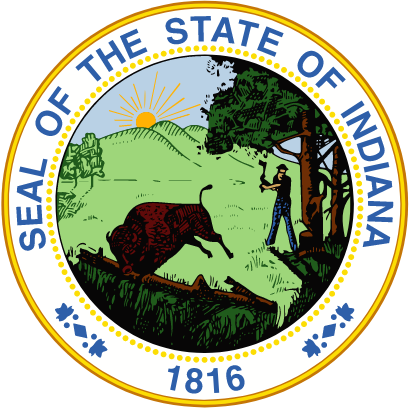Geoscientists, Except Hydrologists and Geographers: 
Study the composition, structure, and other physical aspects of the Earth. May use geological, physics, and mathematics knowledge in exploration for oil, gas, minerals, or underground water; or in waste disposal, land reclamation, or other environmental problems. May study the Earth's internal composition, atmospheres, oceans, and its magnetic, electrical, and gravitational forces. Includes mineralogists, crystallographers, paleontologists, stratigraphers, geodesists, and seismologists.
Also includes
About the Job
| Primary Industry | Science, Technology, Engineering, and Mathematics |
| Indiana Average Salary | $60,150.00 |
| Average Time to Fill | 43 days |
| Typical Education | Bachelor's degree |
| Typical Experience | Over 2 years, up to and including 4 years |
| Current Openings | |
| 2 Year Projected Openings (2022-2024) | 55 |
| 2 Year Expected Percentage Change (2022-2024) | 4.91 % |
| 10 Year Projected Openings (2021-2031) | 238 |
| 10 Year Expected Percentage Change (2021-2031) | 8.18 % |
For more information on the new projection methodology, visit Hoosiers by the Numbers .
Find Available Postings
Select an Area:
...
Skills Profile

Essential (Soft) Skills
Essential Skills to Employers
Information Gathering
Critical Thinking
Written Communication
Integrity
Numerical and Arithmetic Application
Decision-making
Technology and Tool Usage
Oral Communication
Leadership
Problem-solving
Creativity
Top Job Duties and Responsibilities
Analyzing Data or Information
Analyze scientific or investigative findings
Perform geographical or environmental research
Conduct standardized quantitative laboratory analyses
Identify problems using mathematical or statistical methods
Perform statistical analysis or modeling
Determine geographic coordinates
Analyze geological or geographical data
Analyze ecosystem data
Interpret aerial photographs
Analyze geological samples
Locate natural resources using geospatial or other environmental data
Conduct standardized qualitative laboratory analyses
Isolate microorganisms
Test chemical or physical characteristics of materials or products
Interpret research or operational data
Evaluate designs or specifications to ensure quality
Getting Information
Research hydrologic features or processes
Research geographical information using library or internet
Research impact of environmental conservation initiatives
Collect geographical or geological field data
Conduct laboratory research or experiments
Conduct field research
Collect statistical data
Conduct geological surveys
Gather physical or topographical survey data
Conduct geological research
Review maps to determine location or routes
Interpret construction, extraction, or mining related information from blueprints or schematics
Review industrial, production, or manufacturing codes and specifications
Review engineering data or reports
Conduct historical research
Thinking Creatively
Develop scientific hypotheses, theories, or laws
Write research or project grant proposals
Write business project or bid proposals
Develop new products based on scientific research
Develop plans to manage natural or renewable resources
Develop sustainable industrial or development methods
Develop informational maps or charts
Create mathematical or statistical diagrams, charts, or tables
Design industrial or manufacturing machinery or equipment
Design mining or petroleum extraction system equipment
Develop simple informational data repositories or databases
Develop complex computer databases
Guiding, Directing, and Motivating Subordinates
Direct scientific research or investigative studies
Manage laboratory environment or facility
Coordinate cross-disciplinary research programs
Direct implementation of new procedures, policies, or programs
Direct construction of mine shafts or tunnels
Manage handling of hazardous, toxic, or non-compliant materials
Supervise scientific or research based personnel
Interpreting the Meaning of Information for Others
Present research results to others
Write scholarly or technical research documents
Conduct scientific or research related presentations
Communicate results of environmental research
Recommend further study or action based on research data
Provide expert testimony

Real-Time Job Posting Statistics
Find out more about information about these jobs in your area below:
Booster Skills & Certifications
Job Seekers possessing booster skills & certifications, such as those listed below, added to core skills are more marketable, harder to find and expensive to hire.
Hard to Fill: Employers find positions requiring these skills to be hard to fill. These skills and certifications make a job seeker more in demand because the skills are not widely available.
Expensive to Fill: Employers find positions requiring these skills to be expensive to fill. Job seekers with these skills and certifications are likely to earn more money.
| Skill or Certification | Certi - fication | Certification | Hard to Fill | Expensive to Fill |
|---|---|---|---|---|
| Budgeting | ||||
| Hazwoper | ||||
| Quality Assurance and Control | ||||
| Soil Sampling | ||||
| Preparing Proposals | ||||
| Report Writing | ||||
| Data Analysis |
Related Licensing Requirements
Professional Geologist (18-0000000036)
- Indiana Board of Licensure for Professional Geologists~Indiana Geological Survey~Indiana University (8128555067)
- http://IGS.indiana.edu/Licensing/
